English
English Language
|
English Department |
||
|---|---|---|
|
HOD (English) |
Mrs Katherine Wong |
tan_nguang_leng@schools.gov.sg |
|
Acting Level Head (English) |
Mdm Nurul Aqilah Binte Mohd Khirashid |
|
|
Acting Level Head (English) |
Mdm Charlene Goh Shan Mei |
|
|
Lead Teacher |
Mrs Julia Ng |
lee_hwee_hoon_julia@schools.gov.sg |
|
Senior Teacher |
Mdm Norlela Men |
norlela_men@schools.gov.sg |
VISION
Our Pupils will be Effective and Confident Communicators
MISSION
To instill the love for English Language learning and to cultivate a rich environment for development of reading, writing, listening and speaking skills.
DESIRED OUTCOMES
All pupils should attain foundational skills, particularly in grammar, spelling and basic pronunciation. The majority of our pupils will attain a good level of competence in English, in both speech and writing.
KEY PROGRAMMES
CORE CURRICULUM
STELLAR @ Rosyth (STrategies for English Language Learning And Reading )
The core curriculum seeks to develop our pupils holistically, with a comprehensive, stimulating and engaging instructional programme.
The objectives of the programme are as follows:
-
To employ a variety of effective teaching and learning pedagogies that focus on WHAT and HOW pupils are learning;
-
To have a balanced and holistic assessment of our pupils.
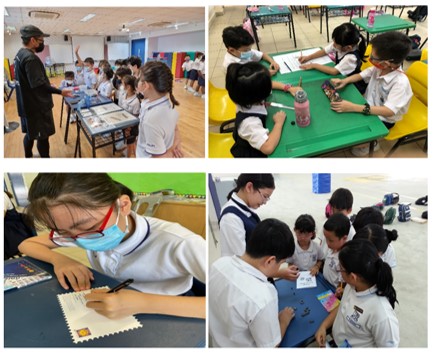
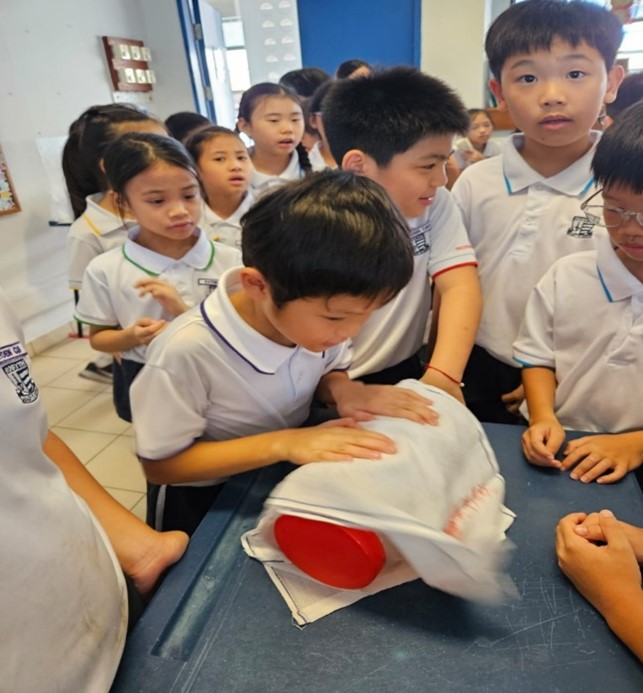
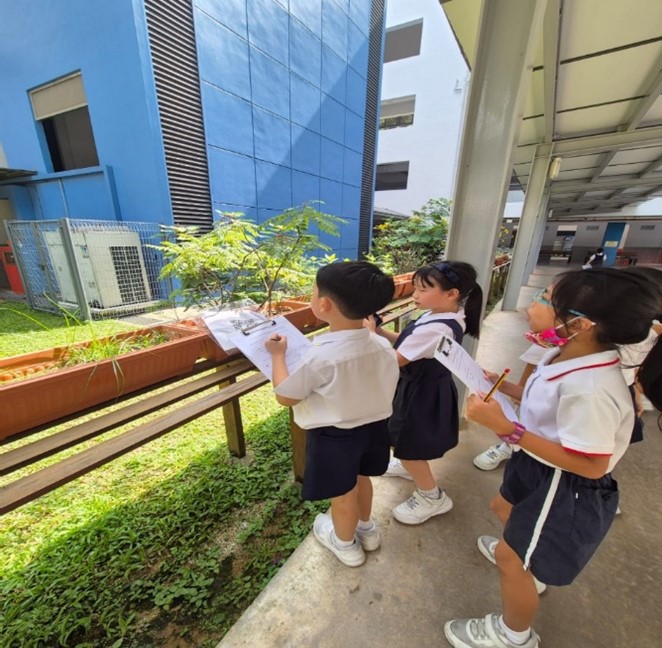
SIGNATURE PROGRAMMES
ERP @ Rosyth ( Extensive Reading Programme)
As part of our ERP@Rosyth, one English period a week is ringfenced in the timetable to provide dedicated time for leisure reading in all Primary 1 to Primary 6 classes. Through this programme, pupils are exposed to a plethora of reading materials and genres. Lower Primary pupils are also given opportunities to visit the library on a regular basis as well as participate in a carefully curated set of activities to encourage them to cultivate good reading habits from young. Library activities are compiled into a teacher-designed booklet and differentiated to arouse interest. The different activities give the pupils autonomy when they explore texts of different genres and plan their completion on their own, thus developing self-directedness in learning.
Through our programme, we hope to:
-
Inculcate a love for reading amongst our pupils;
-
Develop competency and independence in reading; and
-
Enable pupils to analyse local issues critically and be engaged in discussions.
Reading Circles
Literature is incorporated into our curriculum for selected pupils. Through this programme, we hope to provide opportunities for advanced readers to develop greater appreciation of the various literary elements in stories and deepen comprehension skills based on prescribed texts.
Read@Rosyth
To promote the use of good English in Speaking, Reading, Writing and Listening, a host of engaging activities are planned to arouse pupils’ interest in the speaking of the language. Examples of some of these activities include NLB Bulk Borrowing (Read, Swap, Share), “It’s Storytime!” book sharing and “Book Character Day” as part of our READ@Rosyth programme.
Pupils are provided with opportunities to perform to their classmates, pupils in other classes as well as the general school population. This is in alignment with the desired outcomes to nurtrure each child into a confident person, self-directed learner, active contributor and concerned citizen.
Through the various school programmes, we hope that Rosythians will be able to use English to communicate well with each other and build happy relationships. Teachers and parents are especially important in this initiative as we are the main facilitators who play a very important role in the acquisition and usage of Standard English.
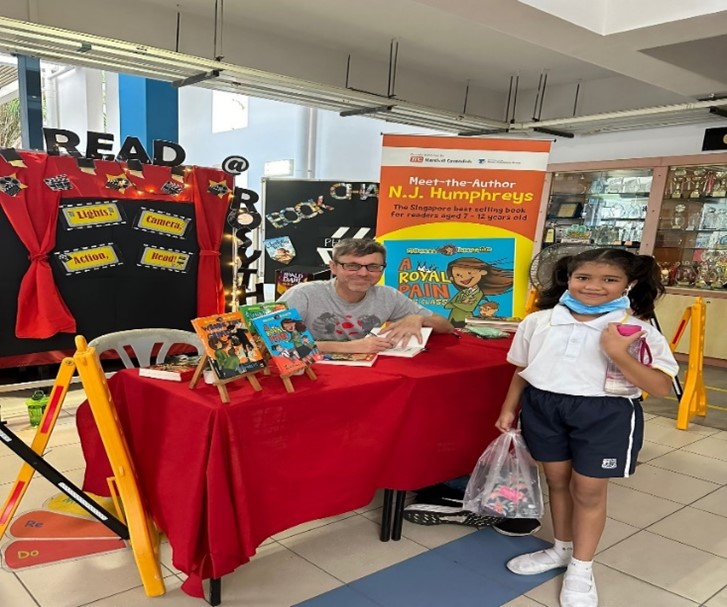
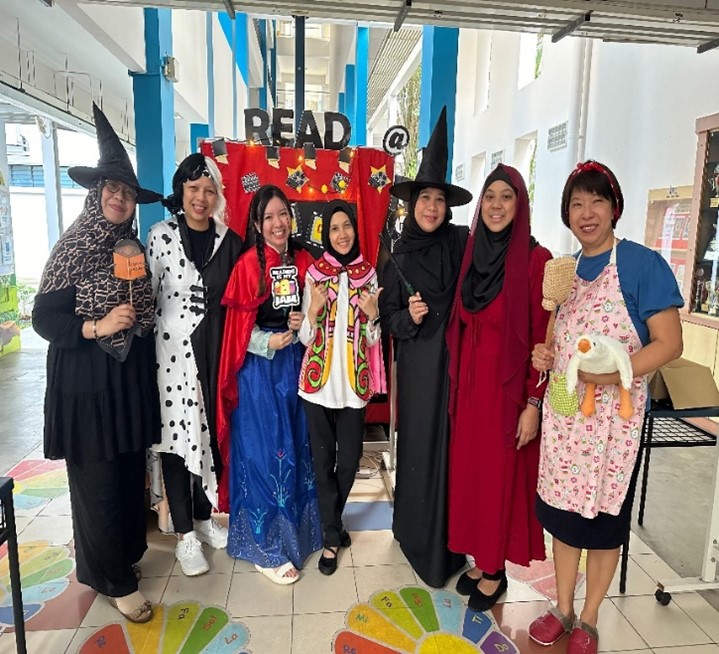
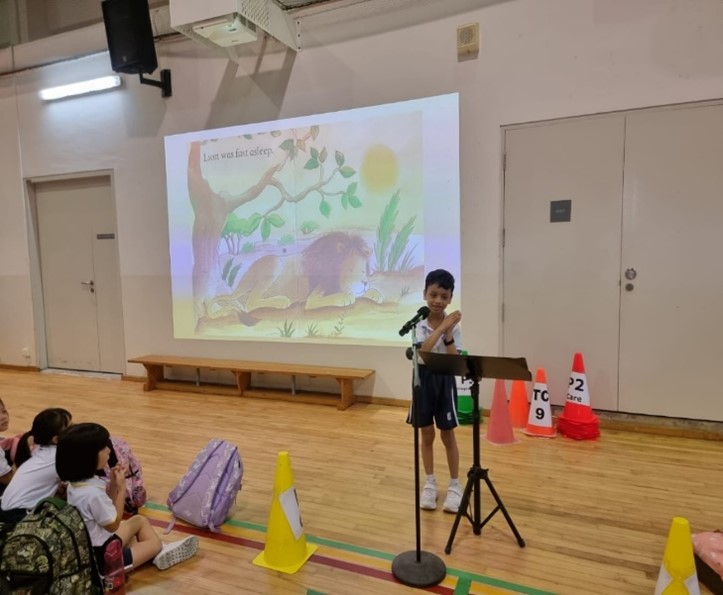
Primary 1 Moo-O PiSP (Parents-in-School Programme)
The Moo-O programme has been incorporated into the P1-2 English curriculum in Rosyth. It uses a reading software that transforms the way stories are read and enjoyed, by involving the readers in the virtual story world as story characters. It is designed to help children read well, by letting them experience and understand how by reading fluently and expressively, they can enjoy their stories better. The programme strives to develop oracy and collaborative learning amongst our pupils.
The programme has provided the school with the opportunity to build successful partnerships with our parents through the implementation of the Primary 1 Moo-O PiSP (Parents-in-School Programme) during Curriculum Time. This programme aims to enhance the level of parental involvement in the school curriculum and hence, foster greater partnership with parents in the child’s learning.
SUPPORT PROGRAMMES
Learning Support Programme
The Learning Support Programme (LSP) is an early intervention programme aimed at providing additional support to pupils who enter Primary 1 with weak English language and literacy skills. Its objective is to equip the pupils with basic reading and spelling skills.
To further support and enable pupils to be able to transit into the primary school curriculum, R.E.A.P. (Reading Extensively Afterschool Programme) caters to selected pupils who need additional scaffolding with specific focus on reading and wordsight. This programme is conducted by teachers who are trained to aid pupils in bridging their learning at entry levels.
PREP with MUMs @ Rosyth
PREP with MUMs @ Rosyth is a programme that aims to equip weak readers
with the reading skills necessary for their daily school work. The programme
also aims to help pupils cultivate good reading habits and ignite their
love for reading so that in time to come, these pupils will become successful
readers who will no longer learn to read but rather, they will read at
more appropriately challenging levels in order to read to learn.
The programme provides opportunities for pupils to be exposed to word games, pupil collaboration and class presentations. There are also opportunities for independent learning through book reviews. The programme strives to foster deep learning to enhance greater pupil motivation.
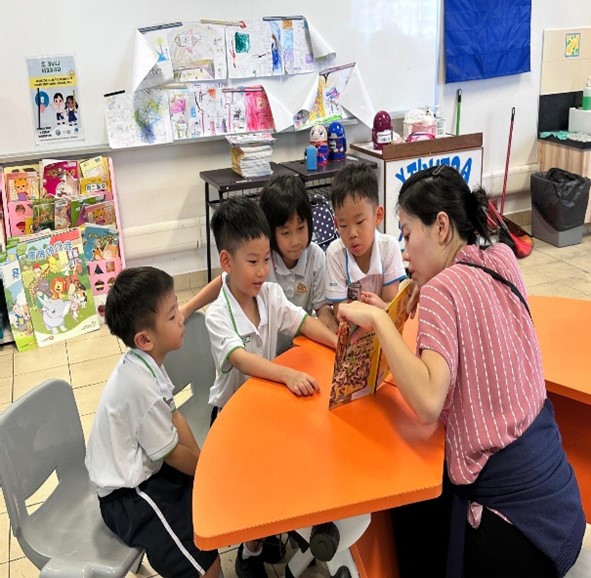
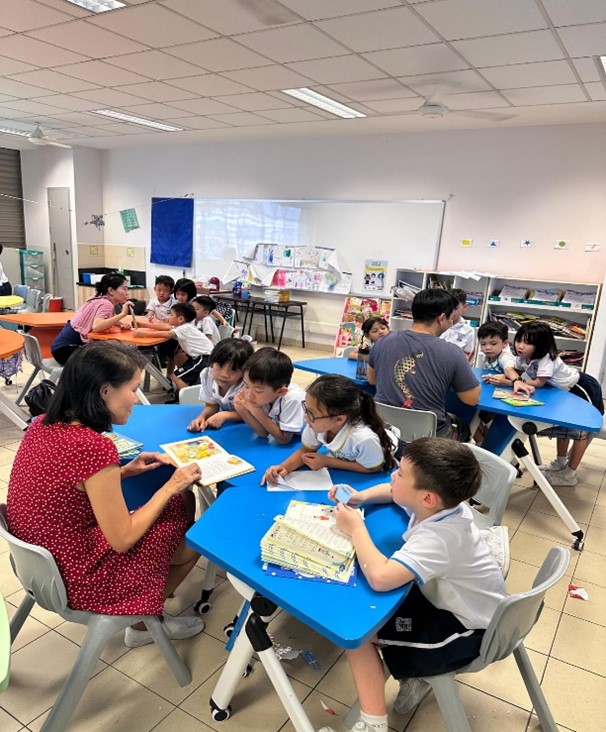
Reading Remediation Programme (RRP) & School Dyslexia Remediation Programme (SDR)
These two intervention programmes cater to pupils who have been assessed to require further support at the mid levels. Teacher instructors are specially trained to conduct targeted and focused lessons to equip pupils with the necessary skills pertaining to phonemic awareness and reading comprehension.

